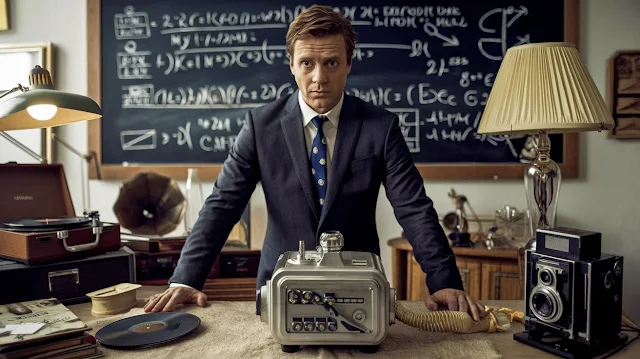Theory of Time Travel
Theory:
According to this theory, everything engraved is destined in the past, present, and future. You did something; it already has been so.
You cannot do anything to your past since it is already done, gone, and finished. Any changes you will make, as this theory dictates, will already have taken place in the timeline.
Paradox-Free Time Travel
A physicist named Germain Tobar at the University of Queensland has also proposed a model which conceptualizes time travel without paradoxes.
In this proposition, the universe will self-adjust to avoid any inconsistency that might result from traveling through time with coherency in the timeline.
Special Relativity and Time Dilation:
His special theory of relativity simply assumed the time could be dependent upon the velocity of the body. According to the moving observer, time runs slowly as the object approaches light relative speeds while relatively stationary observers.
It describes one of the effects: how the traveler may arrive sometime in the future while still clocking the same number of proper clocks along the journey.
Wormholes
hypothetical structure which, could connect two points of spacetime, and might even let someone move through the universe on a shortcut or even into a past or future time This assumes the possibility of stability and traversability in space-time.
Stephen Hawking Theory
Stephen Hawking has presented the idea that the universe could be such that it is impossible to go back in time.
According to him, though laws of physics suggest that one could theoretically go forward in time through a phenomenon known as time dilation, one could not travel back in time as that violates the basic laws of physics.
Types of Time Travel in Fiction Voluntary
Time travel:
Such characters deliberately use some sort of device or tool to travel in time. Examples include H.G. Wells' "The Time Machine" and the series of "Doctor Who," in which a machine or device is used to shift through time.
Accidental Time Travel:
In this scenario, characters end up going through time without intending to. Perhaps it is by the effect of a malfunctioning device or a natural occurrence, maybe even a supernatural phenomenon.
Some examples include "The Time Traveler's Wife" by Audrey Niffenegger and "All Our Wrong Todays" by Elan Mastai.
Alternate Timelines:
This kind of story examines a change in history, creating alternate timelines. Most often, they are used to depict "what if" scenarios and results of changing history. Examples are Philip K. Dick's "The Man in the High Castle" and "The Butterfly Effect".
Scientific likelihood:
Though there are some theories that suggest the possibility of time travel in certain conditions, others negate the possibility of time travel under the laws of physics.
Be it or not, time travel still inspires us and has inspired a plethora of stories in every medium.
Ethical Considerations:
It has so much ethics about whether it's moral to change history, alter the lives of others, or interfere with persons living in the past or the future.
Most of these considerations usually occur in science fiction stories or in philosophical discussions.
Conclusion:
Time travel remains to be a theory with various models and interpretations in science as well as fiction.
A few of them believe that it can be possible under certain conditions, while others hold the opinion that it is impossible in principle, for it violates the laws of physics.
Still, time travel continues to capture our imagination and inspires so many stories in all sorts of media.


Post a Comment